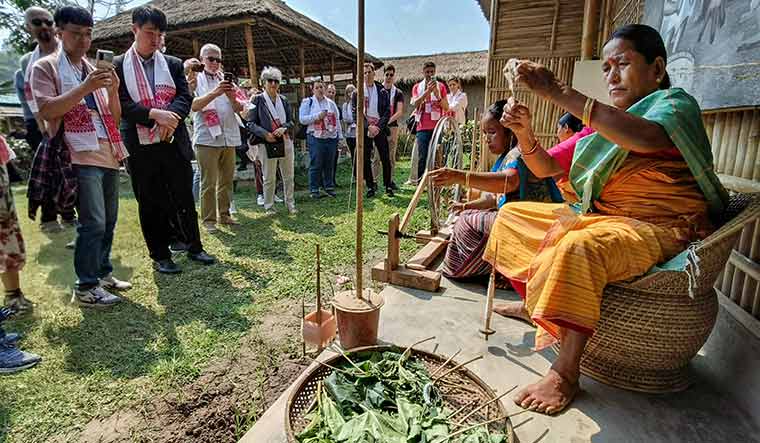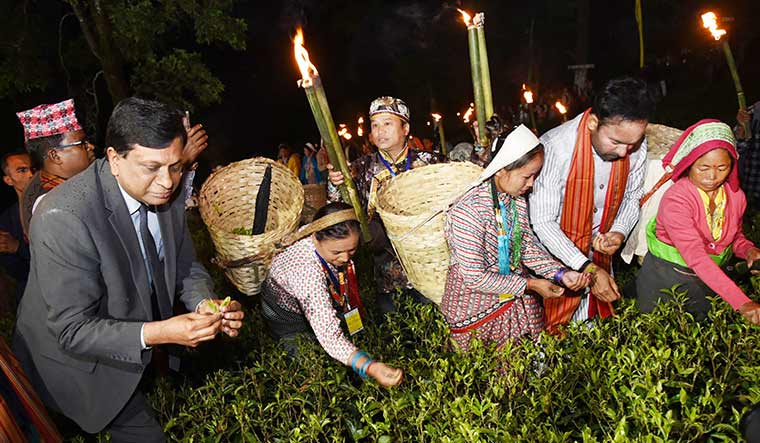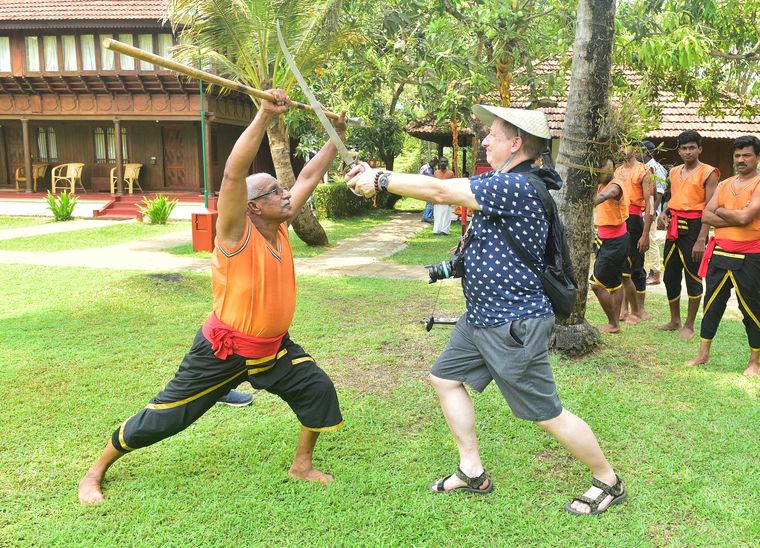This April, India organised a moonlit diplomatic tea party at the Makaibari estate in Kurseong, West Bengal. Makaibari is perhaps the only legacy tea estate in the country that is devoid of a strong Raj influence. Barring a brief period of ownership by an Englishman, the estate has been run by Indians. The Modi government chose the Makaibari estate for the second G20 tourism working group meeting. Like the Boston Tea Party of 1773, this one, too, was somewhat about a political stirring. Not a rebellion, but a radical idea—of taking diplomacy beyond the confines of the national capital.
With 200 meetings across 60 cities, the G20 meetings have been a ‘Discovery of India’ exercise. From Sardar Patel’s Statue of Unity at Kevadia to the Mahatma Gandhi museum at Dandi Kutir (both in Gujarat), the venues have been chosen to project Brand India, Modi style. “Foreign policy has been the Modi government’s big success story,’’ said retired diplomat Gurjit Singh. “Modi is one of the senior-most leaders of the G20, along with Xi Jinping and Vladimir Putin. The upcoming summit is among the biggest diplomatic events that India can host.”
A working group meeting on tourism was held in Srinagar in May—inarguably a diplomatic win for India, even though China and Turkey chose to stay away. Goa, too, hosted a tourism meeting. Kumarakom, in Kerala, was chosen for a G20 sherpas’ meeting. Jodhpur hosted the first employment working group meeting, while Kohima was the venue for the meeting on multilateral business partnerships in agriculture and food processing, tourism and IT. Indore hosted the first agriculture deputies’ meeting; Nagpur was selected for a civil society meeting, and Patna has been chosen to host a labour engagement group meeting.
Some of the events were intended to offer the delegates a totally different experience. For a working group meeting at the Rann of Kutch, a tent city was erected, which looked striking against the backdrop of an unending expanse of white sand. The delegates were later taken to the Smritivan Earthquake Museum, a memorial for the victims of the 2001 tragedy. At the education working group meeting in Amritsar, the delegates were taken on a trip to the Golden Temple. During the meeting of the supreme audit institutions hosted by the comptroller and auditor general of India in Guwahati, a trip to the Kamakhya temple and a cruise down the Brahmaputra were on offer.
The initial briefing session for the G20 envoys was held last November on Havelock Island, a part of the Andaman and Nicobar islands. The location was chosen with care. “The island is strategically important,’’ said an official. “But it is also important to put Havelock on the tourism map. Ambassadors often don’t get to see the Andamans.” The northeast is another focus area, promoted under the Business20 events, in an attempt to boost the region’s economy. “There has been some interest for deals, for instance, in agro-processing,’’ said an official.
The presidency of the G20 is clearly a moment that spells India’s arrival on the global stage. But it is also an opportunity for the government to make the common man an important stakeholder in the country’s foreign policy. The process of ensuring public participation started with a selfie competition held last December when India took over the G20 presidency. Since then, there have been several attempts to make the common man a part of the G20 moment. The buzzword for the events has been jan bhagidari (public participation). “It is not limited to diplomatic efforts,’’ said an official. “The idea of crafting the programmes has also been focused on what the events mean for the common man.”
 G20 delegates visiting Sualkuchi village, which is the centre of Assam’s textile production | PTI
G20 delegates visiting Sualkuchi village, which is the centre of Assam’s textile production | PTI
There has been a big push to reach out to schools, colleges and universities. By June, 70 universities have joined the initiative, with diplomats engaging 1.5 lakh students. “With G20, India is effectively using the multilateral forum to democratise foreign policy and invigorate subnational diplomacy,’’ said public policy expert Sudarshan Ramabadran. “Through satellite events like B20 (business), Y20 (youth) and L20 (labour), everyone is an equal stakeholder in the discussions related to G20.”
Going beyond big cities like Mumbai, Bengaluru, Delhi, Chennai and Hyderabad, the G20 events are also held in smaller cities to showcase the history of India, which is very much at the heart of the BJP’s idea of Bharat. The chosen venues tell the story of India that the Modi government wants to project. A trip to the Narmada dam—Modi’s pet project as chief minister of Gujarat, yoga retreats in Rishikesh and Ganga aartis at Varanasi are all part of this strategy.
This is not the first time that Modi has chosen to go beyond Delhi and use a slice of history as a backdrop for his diplomatic engagements. President Xi sat on a swing in Ahmedabad and walked on the beach at Mahabalipuram, while former Japanese prime minister Shinzo Abe watched the Ganga aarti in Varanasi. Now the G20 provides the government an opportunity to offer the world a glimpse of the “civilisational’’ history of Bharat. “India is a civilisational state, not just a nation state. In essence, we have had nearly 5,000 years of continuity in terms of our civilisation,’’ said Ramabadran. “It is important that places like Varanasi, Mahabalipuram and Gandhinagar are selected. They ensure that not just our policies, but our values and culture are also conveyed to foreign diplomats and institutions. It is public diplomacy.”
So, Hampi was a chosen destination for various events. The site, which blends myth with history, was a deliberate choice. “It is a medieval site which once belonged to the Vijayanagara empire,’’ said an official. “It was selected to display the progress India had achieved during medieval times. It is also linked to the mythological kingdom of Kishkinda, which is believed to be the birthplace of Lord Hanuman.”
Finally, the G20 summit is also a projection of India’s global power for the domestic audience. As foreign policy gets viewed increasingly through the prism of nationalism, a successful summit could further boost Modi’s image. “The summit comes at an inflection point when the world is witnessing India’s rise as a global power,’’ said Harsh Pant, vice president of studies and foreign policy at Observer Research Foundation. “The Ukraine war continues. And we have the Indo-Pacific emerging as an important area, and it does not exist without India.’’ Unlike other countries that looked at the G20 summit as just another diplomatic engagement, India has chosen to make it a political affair. It helps Modi and the BJP that it has come at a time when India is gearing up for key elections.
The tourism event held at the Makaibari estate illustrates the care that has gone into the messaging behind the G20 meetings. Sipping Darjeeling tea at a lush green hill station, watching workers race at dusk carrying fire torches to pick the perfect leaves, is as much about the experience as it is about changing perceptions. China may be the biggest producer of tea in the world, but nothing can beat the mystique of the Darjeeling tea. It was perhaps a subtle message the Modi government was trying to convey to the diplomats gathered at Kurseong. “Exposing foreign delegates to different regions helps dispel stereotypes,” said Ramabadran. “It also helps promote cultural understanding.”



